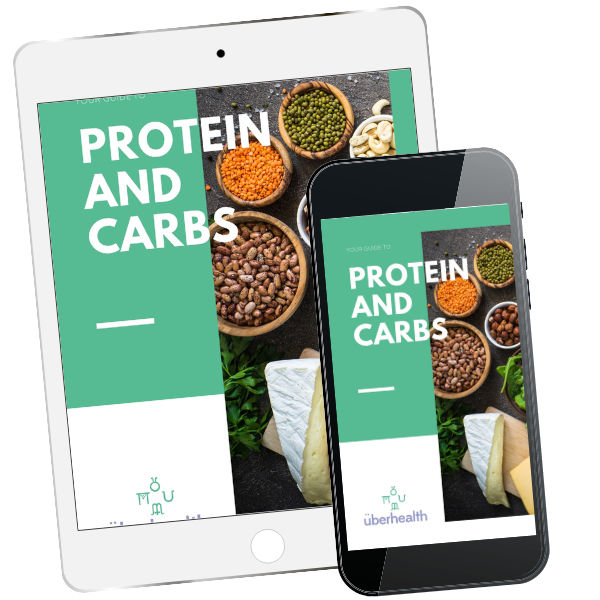The Teenage Hormone Rollercoaster – Why Mood, Energy & Performance Are Tied to Nutrition

Teenage years are a wild ride of hormonal changes, growth spurts, and shifting energy levels. Whether it’s mood swings, sluggish mornings, acne breakouts, or a sudden drop in focus, hormones are in the driver’s seat—but what teens eat can either fuel or fight these changes.
In this article, we’ll explore how nutrition directly impacts teenage hormones, mood, and energy levels, plus practical ways to stabilise blood sugar, balance stress hormones, and fuel focus through food.
The Hidden Impact of Sugar, Caffeine & Processed Foods on Teenage Mood & Energy
Teenagers naturally crave quick energy—which often leads to sugar spikes, energy crashes, and mood swings. Highly processed foods, energy drinks, soft drinks, and refined carbs (white bread, chips, pastries) might provide a short-term boost, but they wreak havoc on blood sugar and hormone balance.
1. Sugar & Blood Sugar Crashes
- How it affects hormones: Excess sugar causes rapid blood sugar spikes, forcing the body to release high amounts of insulin. This rollercoaster effect leads to mood swings, fatigue, irritability, and cravings.
- Impact on teens: A high-sugar diet has been linked to anxiety, depression, and difficulty concentrating—all key concerns for growing teens.
Better choices: Swap refined sugar for natural energy sources like whole fruits, nuts, seeds, and complex carbohydrates.
2. Caffeine & Energy Drinks: The Stress Hormone Trap
- How it affects hormones: Caffeine in energy drinks, sodas, and excessive coffee triggers the release of cortisol (the stress hormone), keeping teens in a wired-but-tired state.
- Impact on teens: Teens with high caffeine intake often experience sleep disruption, increased anxiety, and burnout—leading to poor recovery and reduced focus.
Better choices: Encourage hydration with water, herbal teas, or nutrient-rich smoothies instead of caffeinated drinks.
3. Processed Foods & Inflammation
- How it affects hormones: Ultra-processed foods are loaded with preservatives, unhealthy fats, and additives that increase inflammation and disrupt hormonal signals.
- Impact on teens: Studies show that processed foods contribute to fatigue, brain fog, and even hormonal imbalances like acne and irregular periods.
Better choices: A whole-food-based diet rich in protein, healthy fats, and complex carbs provides steady energy and supports hormone regulation.
Why Sleep & Stress Play a Major Role in Teenage Hormone Balance
Hormonal balance isn’t just about what teens eat—it’s also about how well they sleep and manage stress.
1. The Sleep-Hormone Connection
Teenagers need 8–10 hours of sleep per night, yet many get much less due to screens, late-night studying, or stress.
Sleep is critical for:
- Growth & Recovery: Hormones like growth hormone and melatonin are produced during deep sleep.
- Mood Regulation: Poor sleep increases cortisol, leading to more irritability, anxiety, and low energy.
- Metabolism & Weight Balance: Lack of sleep disrupts hunger hormones (ghrelin and leptin), making teens crave more sugar and junk food.
How to improve sleep:
- Reduce screen time 1–2 hours before bed
- Eat a protein-rich dinner with healthy fats to prevent night-time hunger
- Encourage a consistent sleep schedule
2. How Stress Affects Hormones
Teens experience high academic, social, and athletic pressure, which increases cortisol levels and throws off hormone balance.
Signs of high cortisol in teens:
❌ Fatigue and irritability
❌ Increased belly fat
❌ Irregular periods or worsening PMS
❌ Poor focus and brain fog
How to manage stress naturally:
✔️ Encourage movement (sports, yoga, walking)
✔️ Support mindful habits like deep breathing or journaling
✔️ Prioritise magnesium-rich foods (leafy greens, nuts, dark chocolate) to support relaxation
The Best Foods to Help Teens Feel Energised & Focused
1. Protein for Steady Energy & Mood Balance
Why it matters: Protein helps stabilise blood sugar, supports muscle growth, and reduces mood swings.
Best sources: Eggs, lean meats, tofu, beans, Greek yogurt, lentils
2. Healthy Fats for Brain Function & Hormone Health
Why it matters: Omega-3s and healthy fats are essential for hormone production, brain function, and reducing inflammation.
Best sources: Avocados, nuts, seeds, olive oil, salmon, walnuts, flaxseeds
3. Complex Carbs for Focus & Long-Lasting Energy
Why it matters: Whole, slow-digesting carbs fuel steady energy without crashes.
Best sources: Quinoa, brown rice, sweet potatoes, oats, whole grains
4. Magnesium & B Vitamins for Stress & Sleep
Why it matters: Magnesium supports relaxation, while B vitamins help energy metabolism and stress management.
Best sources: Dark chocolate, almonds, spinach, bananas, whole grains
Simple Meal Plan for Teenage Hormone Balance
Breakfast:
🥑 Scrambled eggs with avocado & whole-grain toast
🥣 Greek yogurt with nuts, seeds & berries
Lunch:
🥗 Grilled chicken or tofu with quinoa, roasted veggies & olive oil dressing
🌯 Whole-wheat wrap with lean protein, hummus, and leafy greens
Snack:
🍫 Dark chocolate & almonds
🥜 Nut butter with apple slices
Dinner:
🐟 Baked salmon with roasted sweet potatoes & steamed broccoli
🥗 Lentil and vegetable stir-fry with brown rice
Teenage hormones don’t have to feel like an unpredictable rollercoaster. With the right nutrition, sleep, and stress management, teens can experience better energy, focus, and mood stability.
By swapping out sugar, caffeine, and processed foods for whole, nutrient-dense meals, teens can fuel their bodies and minds for peak performance—both in school and sports.
Want to learn more? Check out my on-demand workshop on Teenage Hormone Health for deeper insights into nutrition, fitness, and hormone balance.
Training: Hormone Health for Teenagers
A must-watch for parents, practitioners, and teens who want to understand hormone health from a natural, science-backed perspective.
In this on-demand workshop, Women's Health Expert Lara Briden and I combine our 50+ years of experience to explore the unique hormonal and nutritional needs of teenagers—both boys and girls.
This 2-part training covers:
- Growth & Development: Understanding body type, muscle building, and peak bone mass.
- Teen Menstrual Health: How the cycle matures, common issues like PCOS and heavy periods, and natural alternatives to the pill.
- Nutrition & Exercise: How to fuel properly, why protein matters, and the link between movement and mental health.
- Natural Acne & Period Treatments: Science-backed strategies for balancing hormones and skin health.
- Top Supplements for Teen Health: The best nutrients for energy, stress, sleep, and mental well-being.
Ideal for: Health practitioners, parents, coaches, and teens who want to better understand their bodies, hormones, and overall health.
FREE RESOURCE


